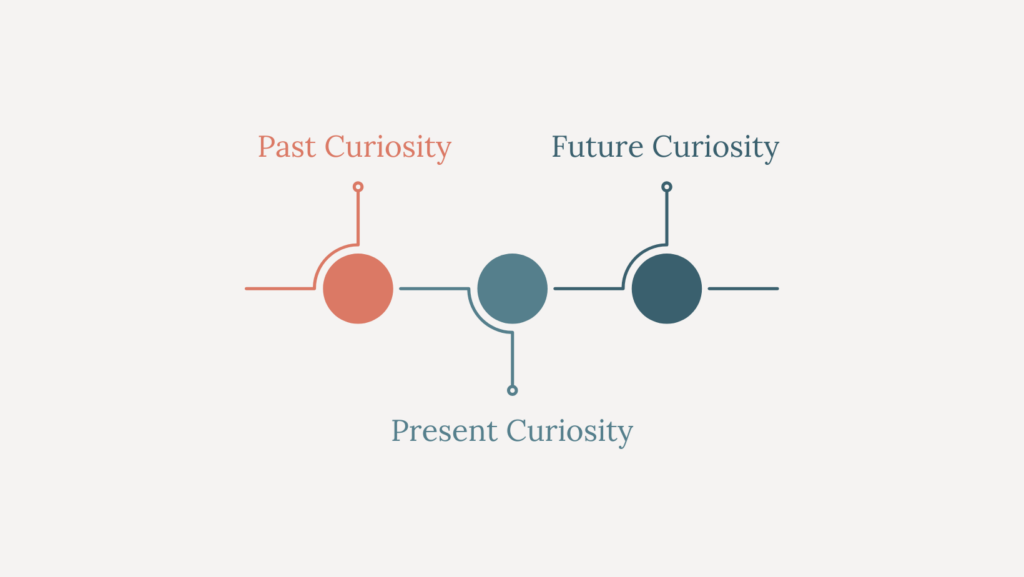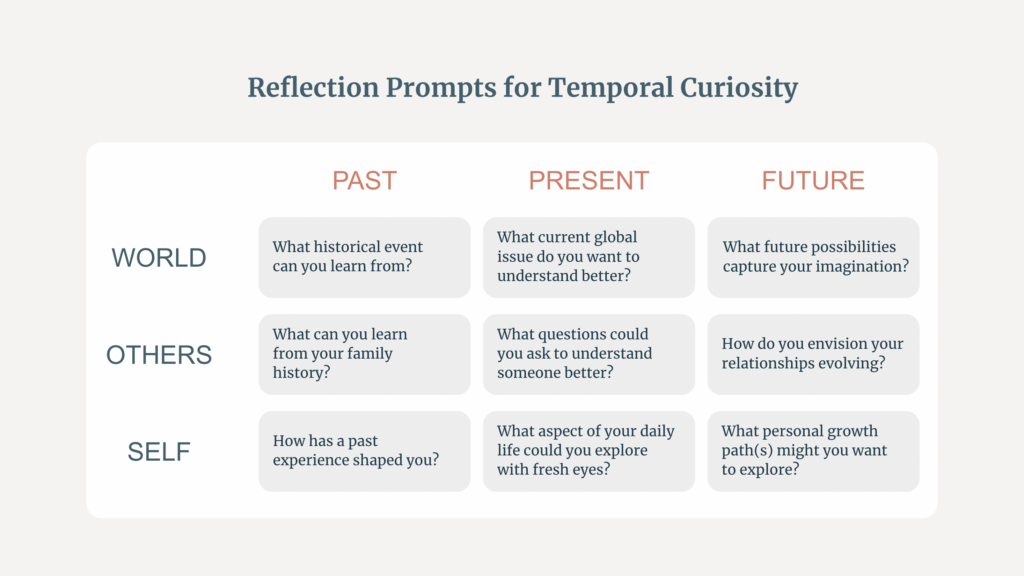The idea of time travel has captivated human imagination for centuries. In H.G. Wells’ classic 1895 novel The Time Machine, the protagonist invents a device that allows him to travel through time, exploring the distant future. While we may still be far from physically traversing time, there is a way to embark on a temporal journey using nothing more than your mind and curiosity.
This phenomenon, known as “chronesthesia” in psychology, refers to our ability to mentally project ourselves into the past or future. By pairing this practice with your curiosity, you can gain profound insights into the past, fully immerse yourself in the present, and imagine more possibilities for the future.
The Temporal Nature of Curiosity
As humans, we have a remarkable ability to direct our curiosity through time. Unlike other animals that primarily live in the present (although that’s a subject of scientific debate), we can consciously choose to explore the past, engage with the present, or imagine the future.
What I call temporal curiosity is the practice of actively directing our curiosity across time – past, present, future – to gain a deeper understanding of ourselves, others, and the world around us.

Past curiosity. Directing our curiosity towards the past can help us understand our origins and learn from history. By exploring past experiences from your own life (including your early childhood) and those of previous generations (including the lives of your parents and ancestors), you can gain insights as to why you are the person you are.
Present curiosity. When we focus our curiosity on the present, we start to appreciate the little things more. This means deeper conversations with friends and family – really listening to their thoughts and experiences. This means noticing details in your surroundings that you might usually overlook. In short, uriosity about the present moment can help you live life more fully.
Future curiosity. Finally, when we let our curiosity lead us into the future, we start to imagine all sorts of possibilities. We might wonder what inventions could make our lives easier, or we could think creatively about potential challenges. Asking “what if” and dreaming up ideas encourages us to be proactive in creating the kind of world we want to live in.
Directing your curiosity towards the past, present, and future can have profound effects on your personal growth and well-being. Studies have found that mentally time-traveling to the past – particularly when you reminisce about positive past experiences – can boost your mood and increase your sense of self-continuity.
This contributes to a more coherent narrative identity and better self-understanding. You know yourself better and you feel better.
In the present, being curious about others’ life stories and experiences can foster empathy and lead to more constructive conversations. Curiosity-driven exploration of the present moment has also been linked to better well-being.
Lastly, being curious about the future can boost your creativity and help you come up with new ideas. Engaging in future-oriented time travel has been found to enhance creative thinking by allowing you to mentally explore and evaluate different possibilities.
When you tap into your curiosity about the past, present, and future, you can better understand yourself, build stronger relationships, improve your well-being, and be more creative.
How to Time-Travel with Curiosity
Curiosity is a powerful tool that you can use proactively. By setting aside time to intentionally focus your curiosity on different time periods (past, present, future) and aspects of your life (world, others, self), you can grow both personally and professionally.
The following nine questions are designed to help guide and structure your practice of temporal curiosity. You can use them as prompts in your journal, as discussion starters with a coach, or as a fun activity with a friend or partner.

Past Curiosity:
- World – What historical event can you learn from?
- Others – What can you learn from your family’s past experiences?
- Self – How has a past experience shaped you?
Present Curiosity:
- World – What current global issue do you want to understand better?
- Others – What questions could you ask to understand someone better?
- Self – What aspect of your daily life can you explore with fresh eyes?
Future Curiosity:
- World – What future possibilities capture your imagination?
- Others – How can you envision your relationships evolving?
- Self – What personal growth path(s) are you curious to explore?
Curiosity is a fundamental human trait that drives us to explore, learn, and grow. However, in the busyness of daily life, it’s easy to let it fade into the background. That’s why it’s crucial to consciously make space for curiosity – whether you choose to direct it towards the past, the present, or the future.
